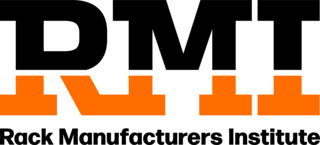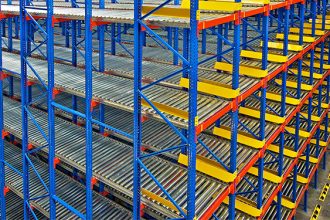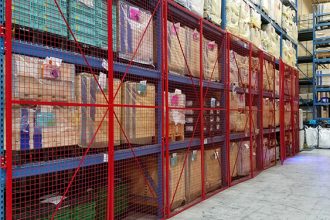Picking Your Racking Partner

A little bit of homework can go a long way.
As you embark on your new racking project, you’ll have many partner choices to sift through. Depending on your knowledge level going in, you may not interview all that many companies. In general, however, talk with at least two or three to compare and contrast what they have to offer. This could be a long-term relationship and one that serves to optimize your operations if carried out successfully. Due diligence is essential before signing any dotted lines.
With each potential partner, you should be covering these five essential points:
Company history—there are many racking companies to consider, and you can quickly narrow down the options by doing a little research into their history and longevity. Determine how long they have been in business—in general, the longer the better, but that’s also not a guarantee. Research customer reviews and see what they have to say. Also consider the size of the company. While regional players are fine if they have a good reputation, do they have a solid track record of shipping projects on time on budget? Sometimes players who have nationwide reach are your best bet; they will have knowledge of different areas of the country and what requirements go along with them, as well as a wider breadth of project variety. Does your potential rack partner provide complete turnkey support? This should include initial design support to installation to project management to post project support. Ask for a site visit or tour to see firsthand their manufacturing facility.
Are they an RMI member?— Rack Manufacturers Institute is committed to educating the racking and supply chain industries on best practices for rack safety, as well as the latest rack-related ANSI standards. With a roster of over 35 member companies, as well as a complete list of companies that hold the specialized R-mark certification, it is worth your time to contact an RMI member or R-mark certified partner for more information. For the list of RMI members visit: RMI Member page. For a list of R-Mark certified companies, visit: https://www.mhi.org/rmi/rmark. Aside from the RMI standards, they should have internal quality control / quality assurance is key.
Is the company financially sound—Again, the length of a company’s history plays into this equation. If they’ve been around for decades, odds are in their favor they are on solid financial footing. While financials are tough to come by with privately held companies, there is plenty of groundwork you can perform to discover financial history. Do your homework to find out, using the Internet, references, and your own pointed questions when considering a partner. Check references including installers who have worked with a potential partner
Does the company have a solid engineering team?—The design of your racking system is at the heart of its success in your operations. You need to partner with a company who comes with solid engineering and design experience. Depending on your location and needs, the partner team should understand seismic activity and your unique operations before making recommendations on racking.
Do they meet your sustainability goals?—
At this point, most every company has implemented some sort of strategy to improve their sustainable practices. When it comes to purchasing racking, an important consideration is whether the partner you choose will complement your company’s goals in this regard. In this case, ask about the painting/coating the potential partner applies to their racking. Do they consider its impact on the environment, and if so, how? This includes any packaging – corrugated or wood.


